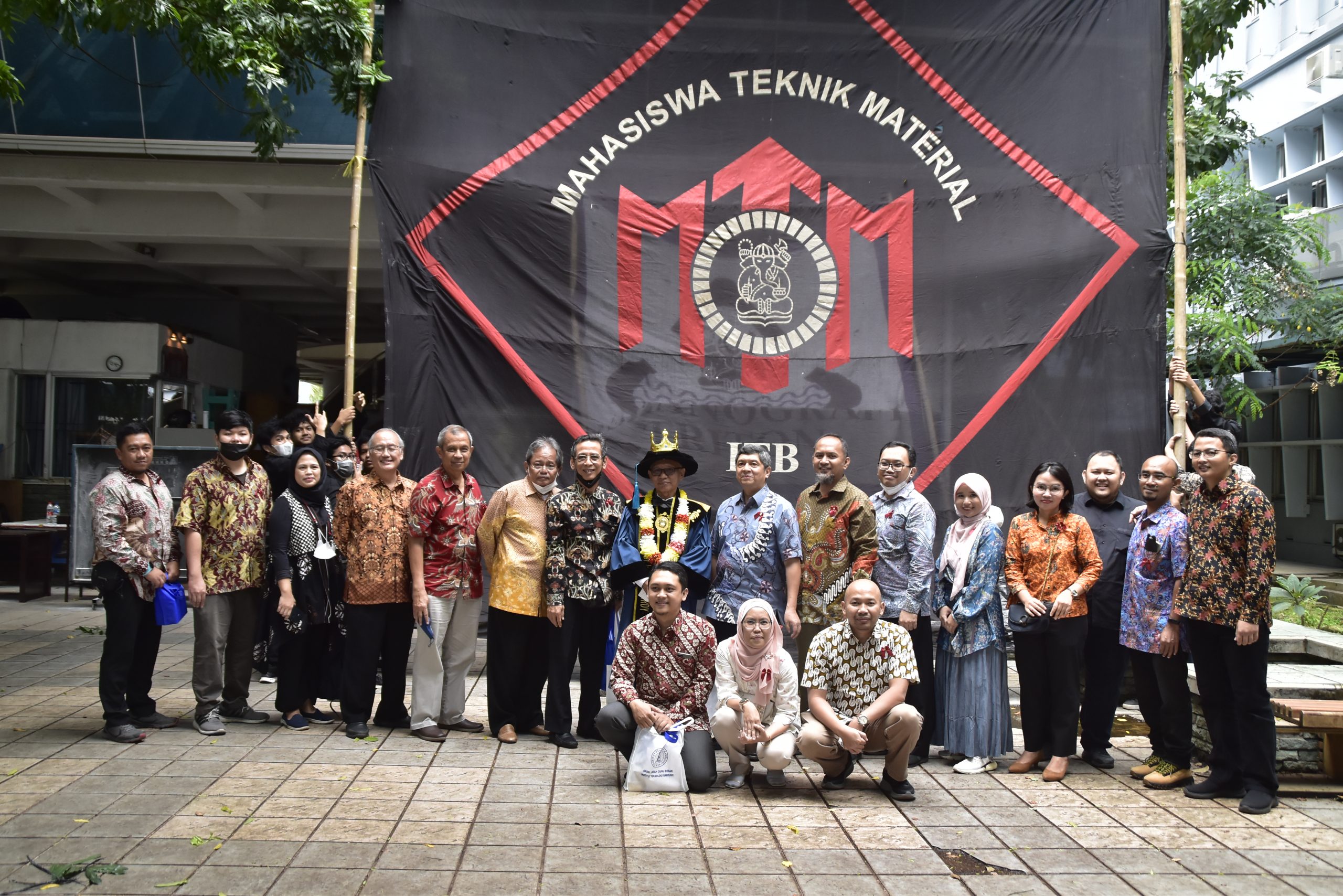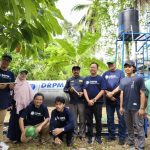The Role of Material Science and Engineering in Supporting Indonesia’s Industry
Bandung – On Saturday, February 11th, 2023, in the West Hall of ITB, the Forum of ITB Professors held the ITB Professorial Scientific Oration event. On this occasion, Prof. Dr. Ir. Husaini Ardy from the Scientific Group of Materials Science and Engineering was given the opportunity to deliver his scientific oration titled “The Role of Materials Science and Engineering in Supporting Indonesia’s Industry”.
At the beginning of his oration, he reminded the audience of the field of Materials Science and Engineering that was introduced by the late Prof. Ir. Tata Surdia and the late Prof. Ir. Harsono Taroepratjeka, MSIE, Ph.D. through their books on metal-based product production which have become a reference for students and academics.
The development of industry in Indonesia is also related to materials science and engineering. Prof. Husaini stated that in the field of materials engineering, there are still many problems that need to be overcome. These problems occur due to the influence of degraded material quality. A proper selection of materials that are suitable for work and environmental conditions is needed to reduce obstacles that occur in factories and the costs incurred for maintenance. These problems still require the participation and contribution of expert personnel from universities to help industries run smoothly because knowledge of materials science and engineering in Indonesia is still developing.
As an academic, he and other educators also collaborate with the industry in an effort to solve the aforementioned problems. The collaboration includes material testing in laboratories, acting as consultants in material selection, conducting courses or training, and analyzing material failures in the industry.
One case handled by Prof. Ardy and his team was the failure of a steam pipe. The consequence of this incident was a significant loss as a result of the failure and shutdown of the steam pipe. Besides material losses, the factory also experienced a loss of time where the handling process could take up to one week.
Prof. Ardy and his team conducted a thorough analysis procedure that included verification of the chemical composition, strength, and microstructure of the steam pipe material. Then, they examined metallurgical and mechanical aspects such as observations of the microstructure of the fractured steam pipe, calculation of tangential stress on the pipe wall, and analysis of the strength or durability of the material at high temperatures.
Based on the analysis results by Prof. Ardy and his team, it was found that the main cause of the three-month steam pipe failure was due to operator carelessness during pipe cutting and improper repair procedures.
He also presented several other cases resulting from FTMD team collaboration with industries related to the technical lifespan study of delivery pipes. He also expressed his gratitude for the trust given to be involved in solving practical problems in the world of industry. This involvement is beneficial not only for academic knowledge but also as a place for students in the Materials Engineering study program to apply what they have learned.







